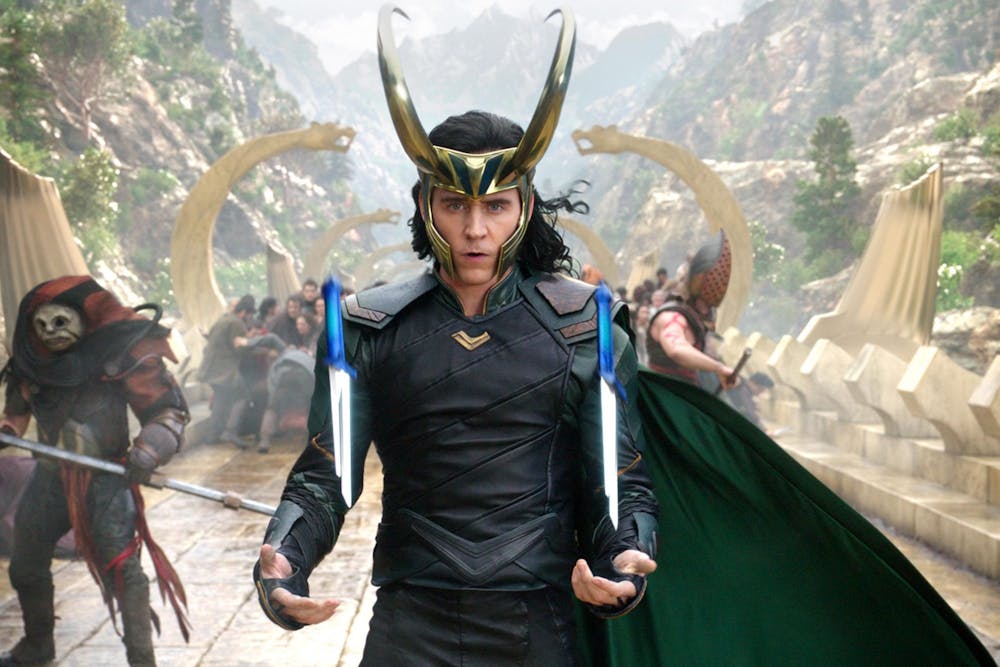I watched the first five episodes of “Loki” all at once. Certainly not by choice — I don’t have Disney+, so a friend invited me over to catch up with Loki and his antics with the Time Variance Authority (TVA) before the season finale the following week. For a good five hours, I was captivated — between the spectacular worldbuilding and attention-grabbing fight scenes that have come to define Marvel, “Loki” dramatically expanded the scope of its cinematic universe. That was, until the last episode, where the show suddenly fumbled the ball entirely.
What went wrong in the season finale? Well for one, it was incredibly boring. For nearly its entire runtime, the episode trades out big reveals or exciting action for exposition. Why is there so much exposition in the last episode of a season? Well, clearly Marvel valued setting up its future projects more than creating a cohesive story for “Loki.” To its credit, it is only the first season of the show (the second has already been confirmed), but on the other hand, there was absolutely no need for the season to be so short. More than six episodes could have allowed “Loki” to feel less rushed, allowing for all the exposition the screenwriters want while still allowing a satisfying story. Either way, there’s definite proof that “Loki” didn’t have to sacrifice either a satisfying show arc or breaking new ground. Just look at fellow Marvel Phase Four tv show “Wandavision,” which managed to thread the needle to the tune of 23 Emmy nominations.
There’s really only one other part of “Loki” that tripped me up — the relationship between its main characters, Loki and Sylvie. They are literally two versions of the same person, and having them fall for each other was incredibly painful to watch. Their kiss during the last episode was the final nail in the coffin for the season’s disappointing ending. Why do writers keep adding random romances to all their stories? “Loki” functions identically if you swap out the “self-cest” with a less disturbing friendship arc: both Loki and Sylvie get to keep their character development into somewhat trusting reformed backstabbers before Sylvie backtracks and betrays Loki in the finale.
Granted, there’s still a ton to love about “Loki.” For one, it has a cast that goes above and beyond, even for those in only supporting roles. Owen Wilson does a fantastic job as Mobius, a wisecracking agent for the TVA. He’s so lovable, you’ll probably leave the season really wishing that he had gotten a bit more screen time. Other cast standouts include the ensemble of variant Lokis in episode five. Not only are they funny, but they also give the show a level of depth and consequence the screenwriters struggled to otherwise develop – seeing all the discarded Lokis in the Void surviving on the literal edge of time and space was a far more compelling indictment of the TVA than indirectly hearing about Sylvie’s sob story about living on the run for her entire life.
The show’s high point comes in its third episode, a character-focused voyage through the apocalyptic mining planet Larentis. The cinematography here is as gorgeous as ever, a purple world under an overbearing moon providing a perfect backdrop for a plot that lingers rather than rushes forward. By trading out earth-shattering reveals for smaller interpersonal moments (set in an ironically mundane apocalypse), the episode allows itself to explore Loki and Sylvie’s relationship in a way that feels gratifyingly down-to-earth.
Even though I walked away from the final episode somewhat disappointed, “Loki” will probably continue to get revisited again and again in the future — if not only because of its importance in setting up other projects in the Marvel Cinematic Universe. Either way, hopefully the follow-up season won’t have to do quite as much exposition.
Get The Chronicle straight to your inbox
Signup for our weekly newsletter. Cancel at any time.
Jonathan Pertile is a Trinity senior and recess editor of The Chronicle's 118th volume.

